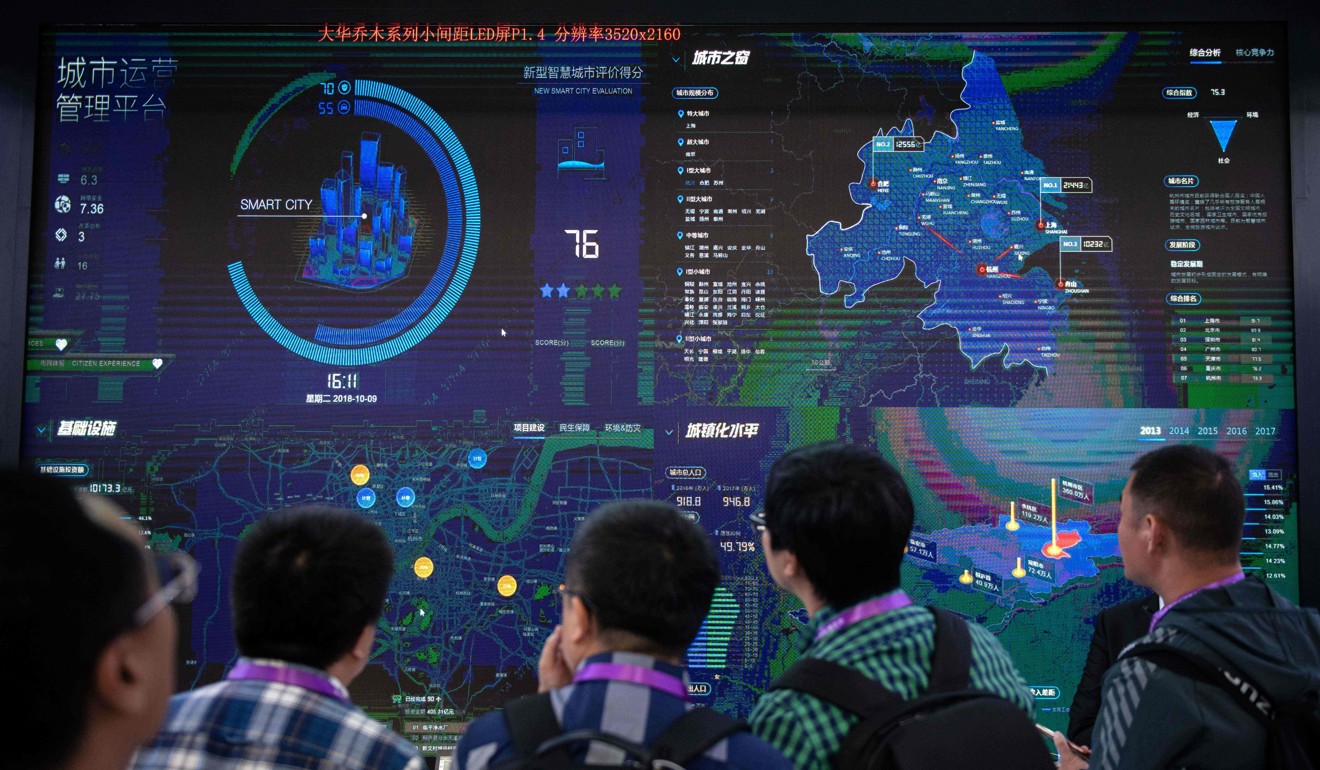Will China’s embrace of military AI trigger a new arms race?
- Beijing is moving quickly to close the technology gap with the US
- China’s neighbours may also try to catch up as a consequence

The rush by China to incorporate artificial intelligence into its military could trigger a new arms race in the region, analysts have warned.
China is lagging far behind the United States in developing its AI capability but the gap is likely to narrow as Beijing pursues its plan to speed up development of an “intelligent military”, first outlined by President Xi Jinping in 2017 at the 19th National Party Congress, according to a report by the Centre for a New American Security.
The country has set up two major research organisations focused on AI and unmanned systems and present trends suggest that the gap with the US will narrow as China is moving quickly to develop its military AI capability, the report said.
China’s pursuit of artificial intelligence for its People’s Liberation Army forces is aimed at leveraging the emerging technology to enhance national power, according to Adam Ni, China researcher from Macquarie University in Sydney.
“Simulations and other exercises aided by AI are important to improve the PLA's training and combat readiness, and form a defensive network that makes it risky for adversaries to undertake military operations,” Ni said.
The military newspaper PLA Daily has repeatedly outlined possible scenarios of future warfare featuring AI.
In November, it carried a description of a swarm of drones, operated by a cloud “brain”, that could detect a target enemy and automatically attack. Another scenario referred to a malicious code that could invade a rival’s network, learn its systems and steal its secrets.
Future “intelligent” wars will simultaneously incorporate land, sea, sky and cyber combat, the report said. They will be fought with smart weapons and systems, supported by AI and capable of analysing situations, undertaking tasks and missions on their own.
As well as the use of smart weapons on the battlefield, China is also encouraging theoretical discussions on other advances which may lead to new developments in its quest for military advancement.
In January, Li Minghai from PLA Daily introduced the notion of the “algorithm game”, which could predict what happens on the battlefield, and may therefore offer a cognitive advantage to Chinese troops.
“The party that grasps the advantages of the algorithm in future wars will be able to quickly and accurately predict the situation on the battlefield, innovate the optimal method of warfare, and achieve the ultimate war purpose of ‘winning before the war’,” Li said.
Military experts said advanced militaries were already exploring ways to include superfast computing power and algorithms to speed up and improve the effectiveness of battlefield decisions and actions, and China feared it might be left behind.
“If the PLA does not develop the ability to carry out “intelligent operations” it will be poorly positioned to incorporate AI learning into military operations, and this could put China at a disadvantage,” said Timothy Heath, senior international defence research analyst at US think tank Rand.
Success in adopting “intelligent operations” as a doctrine could make the PLA even more powerful and lethal, he said.
Bates Gill, a strategic and defence expert from Australia’s Macquarie University, said although the push for AI could help the PLA to operate in a more joined-up fashion, China still had a long way to go to become a truly “intelligent” force.
“As the PLA is able to become more ‘intelligent’, it will need to rely more and more on space-based and cyber-based systems which, like those of other advanced countries, could be vulnerable to debilitating strategic attack, possibly neutering those technological advantages,” he said.

As China steps up the pace to catch up on AI applications, its neighbours could be forced to seek additional weaponry of their own to deter the PLA, making the region less stable, the experts warned.
“A likely consequence is that neighbouring countries with resources, most notably Japan, may find themselves looking to adopt some version of intelligent operations to match the PLA. Other countries may seek to acquire additional weaponry to deter the PLA,” Heath said.
His concerns were echoed by Gill, who said: “If Beijing becomes more capable in this area, its potential adversaries in the region will need to develop more powerful offensive and defensive capabilities to counteract them … It means we can expect the offence-defence arms race in the region to continue.”